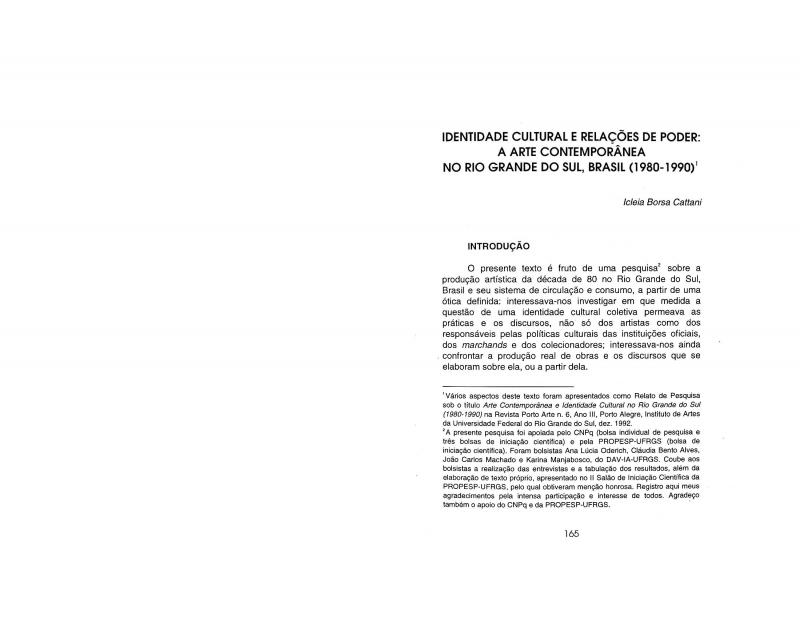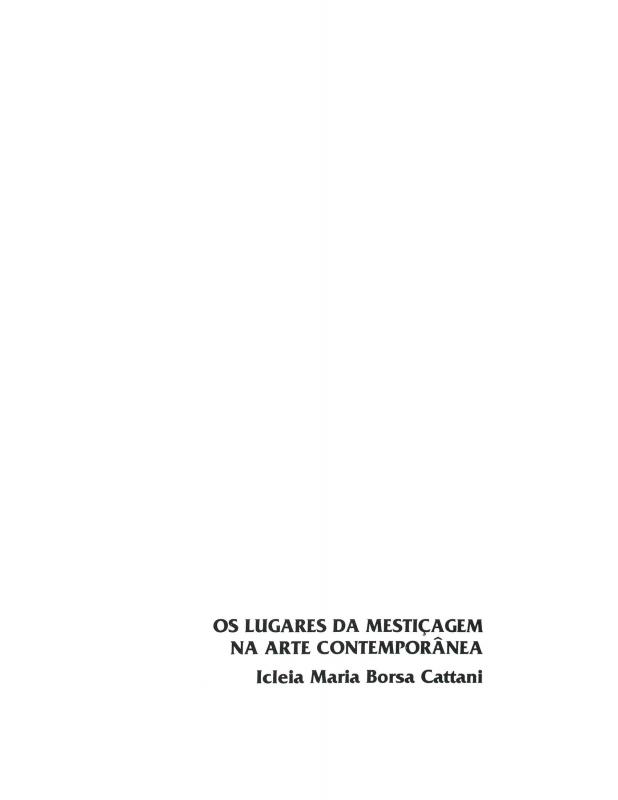The idea of “weave,” proposed in this 2003 article by the art critic Icleia Borsa Cattani, refers to the coexistence, mainly in Latin America, of lines drawn to delineate development as well as others that define underdevelopment, namely illiteracy and precarious living conditions. In this text, she sets forth the concept of weave in opposition to the center/periphery model. Borsa Cattani proposes that other strategies be brought to bear to overcome the impact caused by these inequalities in the globalized world on the Latin American subcontinent. The critic suggests thinking about art as “other,” based on the thought process it stimulates, presenting new geographic configurations, and trying to unite the local with the global. She also recommends examining the individual poetics based on specific criteria, but not as bad imitations of foreign works; she proposes a look at Latin American art that eschews “the exotic.” Issues that affect contemporary art like those cited above are the focus of several articles written by Borsa Cattani.
Icleia Borsa Cattani is an art critic, curator, and professor at the Universidade Federal do Rio Grande do Sul. Some of this writer’s more recent thinking on contemporary art in Latin America are “Identidade cultural e relações de poder: A arte contemporânea no Rio Grande do Sul, Brasil (1980-1990)” [doc. no. 1111395], and “Os lugares da mestiçagem na arte contemporânea” [doc. no. 1111348].


